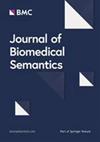Obligatory Irrelevance and the Computation of Ignorance Inferences
IF 1.6
3区 工程技术
Q3 MATHEMATICAL & COMPUTATIONAL BIOLOGY
引用次数: 30
Abstract
In recent work, Fox (2016) has argued, on the basis of both empirical and conceptual considerations, that relevance (the set of propositions relevant in an utterance context) is closed under speaker belief: if $\phi $ is relevant, then it’s also relevant whether the speaker believes $\phi $. We provide a formally explicit implementation of this idea and explore its theoretical consequences and empirical predictions. As Fox (2016) already observes, one consequence is that ignorance inferences (and scalar implicatures) can only be derived in grammar, via a covert belief operator of the sort proposed by Meyer (2013). We show, further, that the maxim of quantity no longer enriches the meaning of an utterance, per se, but rather acts as a filter on what can be relevant in an utterance context. In particular, certain alternatives (of certain utterances) are shown to be incapable of being relevant in any context where the maxim of quantity is active — a property we dub obligatory irrelevance. We show that the resulting system predicts a quite restricted range of interpretations for sentences with the scalar item some, as compared to both neo-Gricean (Geurts, 2010; Horn, 1972; Sauerland, 2004) and grammatical (Chierchia et al., 2012; Fox, 2007; Meyer, 2013) theories of scalar implicature, and we argue that these predictions seem largely on the right track.强制性无关性和无知推理的计算
在最近的工作中,Fox(2016)认为,基于经验和概念上的考虑,相关性(在话语语境中相关的命题集)在说话者信念下是封闭的:如果$\phi $是相关的,那么说话者是否相信$\phi $也是相关的。我们提供了这一想法的正式明确实施,并探索其理论后果和实证预测。正如Fox(2016)已经观察到的那样,一个结果是,无知推理(和标量含义)只能通过Meyer(2013)提出的那种隐蔽的信念算子在语法中推导出来。我们进一步表明,数量准则本身不再丰富话语的意义,而是在话语上下文中充当相关内容的过滤器。特别是,某些话语的某些选择被证明在数量准则是有效的情况下是不相关的——我们称之为强制性不相关的性质。我们表明,与neo-Gricean (Geurts, 2010;角,1972;Sauerland, 2004)和语法(Chierchia et al., 2012;狐狸,2007;Meyer, 2013)标量蕴涵理论,我们认为这些预测似乎在很大程度上是正确的。
本文章由计算机程序翻译,如有差异,请以英文原文为准。
求助全文
约1分钟内获得全文
求助全文
来源期刊

Journal of Biomedical Semantics
MATHEMATICAL & COMPUTATIONAL BIOLOGY-
CiteScore
4.20
自引率
5.30%
发文量
28
审稿时长
30 weeks
期刊介绍:
Journal of Biomedical Semantics addresses issues of semantic enrichment and semantic processing in the biomedical domain. The scope of the journal covers two main areas:
Infrastructure for biomedical semantics: focusing on semantic resources and repositories, meta-data management and resource description, knowledge representation and semantic frameworks, the Biomedical Semantic Web, and semantic interoperability.
Semantic mining, annotation, and analysis: focusing on approaches and applications of semantic resources; and tools for investigation, reasoning, prediction, and discoveries in biomedicine.
 求助内容:
求助内容: 应助结果提醒方式:
应助结果提醒方式:


